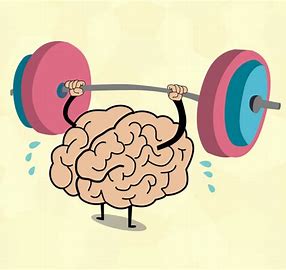Frustrated that your once excellent memory seems to be
failing you? Perhaps you’re studying and struggling to learn new facts, often
forget where you’ve left your keys or phone, or people’s names escape you. Here
are three ways to help improve your memory.

1.
1. Get moving. We know that regular exercise has
numerous benefits. Now we can add brain function, including memory, to that
list. In an analysis of previous studies, University of Canberra researchers
found that aerobic exercise improved cognitive abilities in the over 50s, such
as thinking, reading, learning and reasoning, while strength training improved
memory. Study author Joe Northey believed the findings
were convincing enough to enable both types of exercise to be prescribed to
improve brain health in the over 50s. New research has even found that memory improves
immediately after a short, single bout of exercise, although the benefit is
only temporary.
2.
2. Tweak your diet. What you eat affects how well
your brain functions – just as it affects every other organ in your body. The
MIND diet is an approach with the goal of reducing dementia and age-related
decline in brain health. Like the Mediterranean diet, it focuses on vegetables
and wholefoods, but also singles out specific brain-healthy food groups. These
include green leafy vegetables – such as spinach, rocket, kale, and silverbeet;
all berries (especially blueberries); and oily fish high in omega-3 fats known
to help control inflammation in the brain. What you don’t eat is just as important. The
hippocampus is a part of your brain that’s key to your memory. Studies show
that diets high in junk and processed foods (think lots of sugar, saturated fat
and refined carbohydrates) appear to shrink the hippocampus, while healthy
diets are associated with larger hippocampal volume.
3. Do nothing. When trying to memorise new
material, most of us assume that the more work we put into it, the better we
will perform. But we’d be better off taking breaks and literally doing nothing,
say researchers. Just sit back and enjoy 10 to 15 minutes of quiet
contemplation immediately after reading the material, and your memory of the
facts you’ve just learnt will be far better than if you’d attempted to use that
time more productively. The emphasis here is on doing nothing – no running
errands, checking emails or surfing the web – as this gives your brain a chance
for a complete recharge.

While the exact method is still
unknown, we know that once memories are initially encoded, they pass through a
period of consolidation that cements them in long-term storage. It was
previously believed that this happened primarily during sleep, but research has
since found that similar brain activity occurs during periods of wakeful rest,
too.